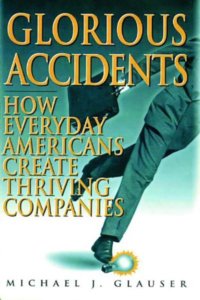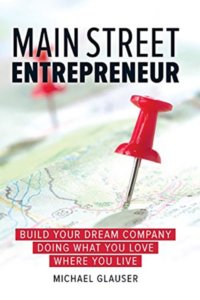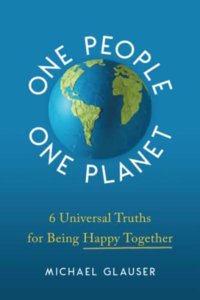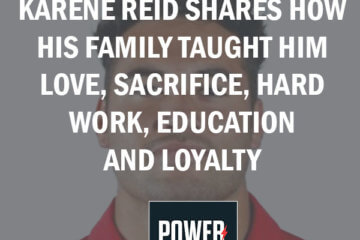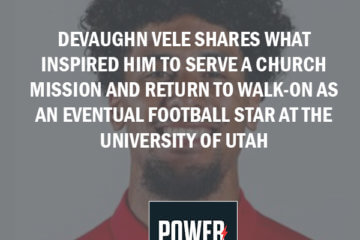Listen to the podcast here
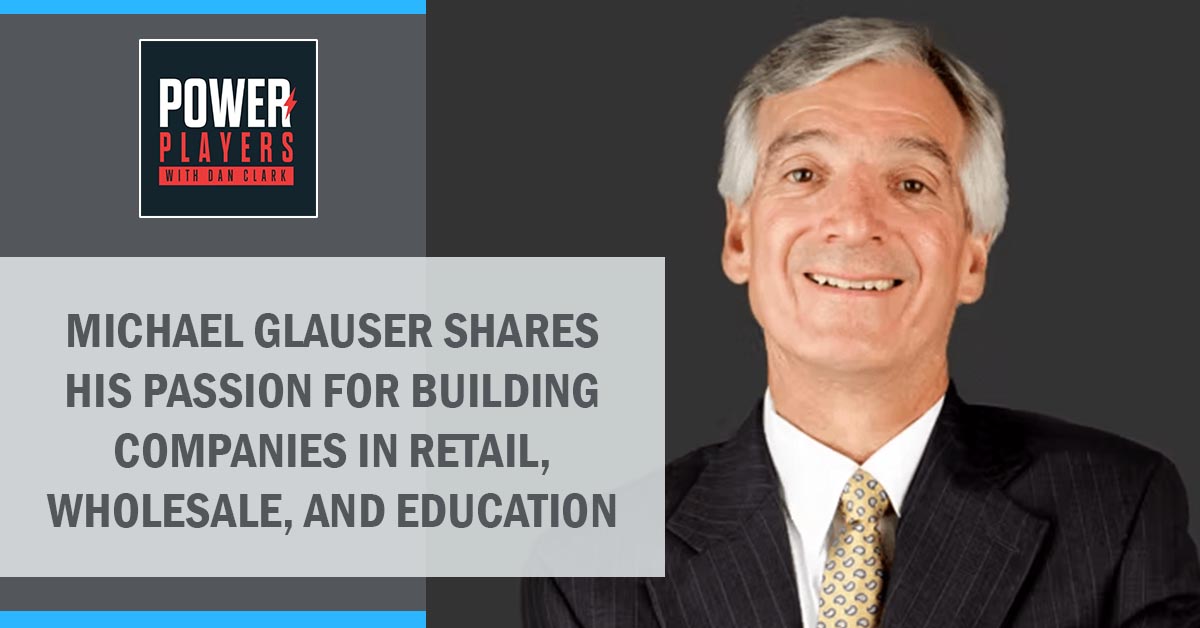
Have you been looking out from inside the window, wondering what’s out there and how you can achieve the future you’re born to have? Wonder no more! In this episode, Michael Glauser shares his passion for building companies in retail, wholesale, and education. He also gives an insight into his four best-selling books, including his latest book, One People. One Planet, presenting six universal truths to help increase happiness, improve relationships, and create greater civility in organizations. So tune in and learn how you can unlock your full potential from someone who has helped about 5,000 individuals and helped start and grow over 700 companies.
—
Michael Glauser Shares His Passion For Building Companies In Retail, Wholesale, And Education
This is an interview with the Executive Director of the Center for Entrepreneurship in the John M. Huntsman School of Business at Utah State University, my dear friend, Dr. Michael Glauser. Thanks for spending some time with me. In this episode, my dear friend and mentor, Dr. Michael Glauser, entrepreneur, author, speaker, business consultant and university professor, who was also the Director of the global SEED poverty alleviation program, helping people around the world benefit their communities through entrepreneurship, shares his life and passion for building companies in retail, wholesale and education, giving us a snapshot synopsis of his four bestselling books, including his book, One People One Planet, which presents six universal truths to help us increase our happiness, improve our relationships and create greater civility in organizations and may I add to that, help heal America.
—
As I usually say, this episode is going to change your life. I mean it this time. I have one of my dearest friends on the planet, not just a friend but a mentor, a colleague someone who guides me spiritually, intellectually and financially. He’s the first one that illuminated in my life that there’s no such thing as a financial crisis, only an idea crisis. Ideas create income, the heart and soul of entrepreneurship. His name is Michael Glauser, entrepreneur extraordinaire, bestselling author, university professor, business coach and starter of amazing programs at some major universities that I’ve had a chance to participate in as an eyewitness to see how amazing his organizational skills are as a leadership high-performance business coach. Michael Glauser, welcome to the show. You truly are one.
Thank you, Dan. That was quite flattering.
Let’s jump right into the questions that all of you readers want to know. How did you get started? When did you first realize that you had this entrepreneurial bug inside of your DNA that makes you continuously curious, that makes you as an elderly gentleman, not as old as me, still tuned into your childlike wonderment? Take us back, Michael.
When I was in college, I fell in love with the idea of building organizations. That’s odd but I love the idea of building organizations of humans that achieved important objectives. There were fabulous places to work where everyone loved to work. I thought if I could learn how to create those organizations, that would be awesome. I went straight through school. I had a Bachelor’s, Master’s and PhD. I went off to teach at the University of North Carolina at the young age of 27 years old. When I was in college, I fell in love with the idea of building organizations.
I thought it would be cool to learn how to put people together, create important objectives, create great products and services and have it be a place where people would love to work and where job satisfaction was high. I thought that would be an important life skill to have. I went right through school to learn those skills through my Bachelor’s, Master’s and PhD. When I got to my first job at the University of North Carolina, I walked into the classroom. It was an evening MBA class.
I was the youngest guy in that class by probably 10, maybe 15 years. These were all executives from the furniture industry and the tobacco industry in North Carolina. I quickly thought, “I need to probably go out and do real business if I’m ever going to be a thought leader in this field of entrepreneurship.” I stayed and taught for four years, then I left, went out and spent the next twenty years starting and building companies. I started 6 companies and sold 4 of those, 2 of them are public companies. I jumped back into university life. I’ve been a consultant along the way and an author as well. I’ve enjoyed teaching at Utah State University.
When we first got connected at the deep level, the real friendship, mutual respect and support level was when I got a chance to witness the program that you had started and founded at Westminster College. Can you tell us a little bit about that entrepreneurship program?
I was on a board of advisors at Westminster College. I was asked to come to teach and help build a center for entrepreneurship, the Institute for New Enterprise. I stayed there for four years and we built a program with courses, workshops and lectures. That’s how I first got close to you as you came and spoke there. It was a phenomenal experience. We’ve stayed close ever since.
That’s when you invited me to come and teach public speaking in the MBA program. That launched my university professor side of my life, which I cherish and love. Thank you so much for believing in me.
I ran into a student from that class who told me how much he liked being in your class.
Talk to us about the first book that you wrote. It’s intriguing. The title is profound. What you need to understand is that 87% of the books that are purchased are never read. It’s about the compelling title that gets our attention. Usually, what we do is we look at the front side of the book, immediately turn it over and look at some of the endorsements, whatever the synopsis is. We open it up, look at the compelling chapter titles and then read the first fifteen pages. The question is, “Why should I listen to you? Have you done it? Are you doing it?” To your point, Michael, you did it. You’re doing it. You have always done it. Take us back to your first book and how that came about.
The ultimate level of happiness occurs in the context of relationships with people.
When I left the world of academics and I’ve been teaching there, I realized that what we were teaching was not what happened in the real world. After building some companies, I was asked to go back and teach again. It was even more clear that what was being taught wasn’t what entrepreneurs did. I had read the book by Studs Terkel called Working, which was a bestseller. He went out and interviewed a whole bunch of people in different industries. They described what their jobs were like. It’s oral history.
I thought, “What if we had a book of oral histories of entrepreneurs that talked about how they started their companies from A to Z when the first idea came to where they were?” I picked the top industry leaders, 100 entrepreneurs around America that were gaining market share and introducing new, innovative, disruptive products. I sent out these invitations. I said, “I’d love to interview for this book.” How many would you guess out of 100?” They said, “I’d love to be included.”
All 100 because you’re making them feel needed, significant and relevant.
I was this young guy right out of my professorship and 97 of them said, “That would be awesome.” There are three I couldn’t connect with. I interviewed these people. I put them in a book and what they kept telling me. I said, “How did this happen?” They’d all say, “It’s an accident.” I’d say, “Why is it an accident?” They described the concept of pivoting as you launched the best idea you have, throwing an experiment out there, getting feedback and realizing, “I got to pivot a little bit. I’ve got to repackage it. I’ve got to redo the product and my pricing.” You keep doing experiments and getting feedback. After a while, you built a company that isn’t what you started with. They said, “I pivoted into this accident.” We called the book, Glorious Accidents. That was the first book on entrepreneurship.
To relate it to our experiences, that’s why we call timeout. It’s when you have confusion on the field or the court call timeout and check in with the coach. Number two, in football, we stop the play and huddle up to pivot to figure out what we do next. The number three, not every play is designed to score a touchdown. One sets up the next, which sets up the next. To your point, once you figure it out, then that receiver or running back breaks loose for that 30-yard scamper to score the game-winning touchdown.
It’s interesting. They would say, “I launched this and it didn’t work as well as we thought. We moved over to here and that worked better. We did this and that didn’t work so we did that. We have this company. It wasn’t what we started at.” Think about this. This is interesting. Investors, particularly banks and people who loan to entrepreneurs want to know that they’re going to follow this strict rigid plan. If they vary from it and go, “What are you doing? You told us you were going to build this,” the savvy investors will say, “We want a team that knows how to pivot as they get feedback from the marketplace.” They might build something different.
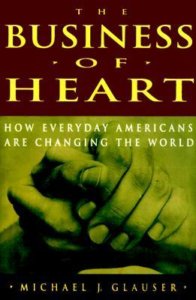
The Business of Heart: How Every Day Americans Are Changing the World
What’s the second book that followed?
The second book was called The Business of Heart. It was the same concept but it was interviewing social entrepreneurs. This was many years ago. I was one of the first to use that term in writing about social entrepreneurs.
Explain that to our readers.
A social entrepreneur is a business leader that builds a company to do good and solve a social problem in the world. It can be a nonprofit or a for-profit but they’re dealing with literacy, the environment or some issue like pollution. They’re creating products and services that give them revenue to produce sustainability but they’re solving a social problem.
This book was similar to Glorious Accidents but it had dozens of social entrepreneurs in it. They’re quite prominent. Mimi Silbert of Delancey Street was one. We interviewed her early. Also, Anthony Shriver who started Best Buddies. There are a lot of cool companies in there about social entrepreneurs solving social problems. That was book number two.
As authors, sometimes we say, “I’ve got 3 or 2 books.” The publisher will say, “Timeout. You give your best effort and put out that first bestselling book, all of your best information. Your readers will tell you what the 2nd book needs to be or your 3rd book.” What Michael is reminding us about is that there are timeless irrefutable truths that apply to every generation in every age group.
Get rid of your judgments and biases of other people. This limits your ability to make create relationships.
When you have the eighteen-year-old kid at Utah State University or Westminster, maybe a nontraditional student getting his MBA coming in in a night class, the guiding principles of entrepreneurship remain the same. I remember devouring your list of seven points that make you an awesome and successful significant entrepreneur. We don’t have to get into the seven. I want you to know I have read your books. What’s book number three?
I’m going to be honest here. I love cycling. I wanted to ride my bike from the West Coast to the East Coast and see America, this great country. I’ve lived in Saudi Arabia and other countries. I love America. I wanted to see it by bicycle. I thought, “How do I create a business opportunity out of this?” What we did is we wrote a book called Main Street Entrepreneur as we crossed America on these bikes.
We rode 4,000 miles and climbed about 150,000 feet of elevation in 45 days. We interviewed entrepreneurs in small towns from the West Coast of Oregon to the East Coast of Virginia. We had a film crew with us and a tour bus that followed us. We interviewed and filmed all these entrepreneurs. We created a lot of little documentaries. We created a book called Main Street Entrepreneur.
The book was published by Entrepreneur Press. They liked the idea of an entry-level book for people that want to put lifestyle as a priority and then figure out how to create a business around that. These people lived in small towns like Sisters, Oregon with 2,000 people but they’re building national and international companies, which is something we can all do with eCommerce.
Small towns like Boring, Oregon, Cut and Shoot, Texas, Alligator, Mississippi and Toad Suck, Arkansas. Every time I talked to him, he reminds me that it’s not the size of the dog in the fight. It’s the size of the fight in the dog. It’s not the size of the town. It’s the size of a dream. When you read your books, anyone in any sized town, little, teeny, tiny towns, if they apply your principles of entrepreneurship, of organization, turning your dream into reality, can’t make an excuse. There’s nothing to do. Where did we get the convoluted idea that it’s our community’s responsibility to make our lives exciting and meaningful? No, we have to take charge.
Your book is like a behavioral Bible. Every single book is a behavioral Bible. It’s a mental meal that says, “I’ve done it. You can do it too. No matter what your past has been, you have a spotless future. Go for it.” Thank you for that contribution to humanity and the entrepreneurial mindset that’s alive and well in 2022.
The interesting thing about this is that 3 or 4 of these people were trained in business formally. Almost none of them got any investment dollars. They built local businesses. One of them was called the Ponderosa Forge in Sisters, Oregon. He was a blacksmith but his projects were up and down and they had downtime. He didn’t want to lay off his blacksmiths in the shop. He started making implements, door knobs, coat hangers and fireplace implements in the forge during the downtime. He sells those online all over the world. He does still do projects in Oregon but he sells a lot of those products online. They’ve all figured out how to capitalize on a local market, as well as a more regional or national market out of a small location.
At Utah State University, where I’ve had the privilege of speaking on your entrepreneurship lecture series, the last time you invited me into a board meeting changed my life. It touched my heart forever to see the quality, the psychic income in that boardroom of entrepreneurs and business executives who support you and your ideas. Before we get to the final book and accentuate the new launch of this book, we all need to buy a copy but more importantly, buy 10, 20 copies and give them away as a gift so that you can spread this beautiful message of entrepreneurship around the world.
Take me into this program that I was exposed to that is the heart and soul, almost the preamble to this last book that you’ve written. It connects social entrepreneurship, philanthropy, for-profit, not-for-profit and everything that I’ve learned from you in these first three books and our personal relationship. Explain what that program is that Utah State. You’ve invited me and my family to join you in the Dominican Republic. I hope we can fit that into our schedule and pull that off because I can’t imagine how different we will be having associated with your idea and entrepreneurial program. What is it called? Teach us in a snapshot what it is.
The program is called SEED. It stands for Small Enterprise Education and Development. What we do is we hand select and pick the best of the best students, 100 students each year. They’re from all majors. They can be from different universities. It’s not just for Utah State. They are people that have a passion to do good and change the world. We spend one full semester teaching them the skills of entrepreneurship, small business consulting and microfinance. They go out and live in the world. We have students there in the fall semester, spring semester, and summer semester. We’re there full-time all year.
I rented a new house in Pong, Ghana that these students live in. What they do is they go out. We partner with organizations like the Catholic church and government organizations and after-care centers for women that have been rescued from the slave trade. The students go in and teach these principles of entrepreneurship and help these people create small little businesses so they can take care of themselves.
What typically happens is the person might be working as a maid making $200 a month in Manila. After that first year, we’ve been able to almost, in every case, double that family income to $400 or $500. It doesn’t sound like a lot of money but in Pasig City in the Philippines, in Pong, Ghana or Guatemala, it’s moving them out of that poverty class. The students have this transformative experience where they come back and say, “I didn’t realize that I hit the jackpot in life and I won the lottery. I’m going to be grateful for what I have.”
Do random good deeds daily, not thinking of yourself but looking for other people whose lives you can bless today.
The second thing they say is, “I want to be a giver, not a taker in my life.” It changes the student. That’s one of our main priorities because we’re an educational institution but it also changes the people that we teach. We’ve taught about 5,000 individuals and families over the last years. We’ve helped start and grow 700 to 800 companies somewhere in that range. I’m traveling back out around the world to reopen everything after the COVID. What we did during COVID is virtual mentoring. We continued the program but we did it virtually from Utah. We were still in contact with people around the world.
Leaving a legacy. Not just making a living but making a difference. That brings up the fourth book. What’s the title? Talk to us about the six powerful guiding principles that you eliminated in that book.
This book’s called One People One Planet. The subtitle is 6 Universal Truths for Being Happy Together. Happy together is important. In all the research that we’ve done, the study of ancient texts and positive psychology, we’ve discovered that the ultimate level of happiness occurs in the context of relationships with people. There are a lot of books on happiness that say, “Go off and set a bunch of goals. Go contemplate your life. Get control of your morning and accomplish one big thing each day. Get in physical shape.”
Those are important. I try to do all those things but they’re rather insular and inward-focused. The greatest happiness comes from building positive civil relationships with other human beings and cooperating to create great communities. Happy together is important. The reason this book came up is that we’re seeing an epidemic of despair in this country.
I see it with high school and college students and the Millennials that I work with. Here are some sobering statistics. At the high school level, 40% of the students say that they’re persistently sad. That’s 4 out of 10. 20%, 1 out of 5 have thoughts of suicide from time to time. At the college level, 40% say they’re so depressed during the semester. There are times when they can’t do their work. Sixty percent say they’re lonely most of the time.
These are reputable studies done by the Centers for Disease Control and the National Institute for Mental Health. They conclude that overall in America, 21% of adults suffer from one form of mental illness or another. I’ve been troubled by that. I’ve been a student of world religions most of my life. Early in my career, I went and worked in Saudi Arabia.

Building Retail Companies: The greatest happiness comes from building really positive civil relationships with other human beings and cooperating to create great communities.
When I was working there, they told me, “Professor Glauser, if you talk about religion and politics, you’re going to get fired.” All my Saudi colleagues were asking me, “Tell us about your religion.” I would say, “I can’t talk about that.” “No. You can’t talk about your religion but we can tell you about ours.” I said, “Let’s do it.” Essentially, they lined me up with a spiritual leader in the community. I had a series of discussions, much like the Mormon missionary lessons in Islam. I agreed to take those lessons if he agreed to teach me Arabic. I had that incredible experience of studying the second largest world religion and comparing it with my faith, Christianity.
What I found is if you do away with some of the mysteries like, “Did we live before this life? Are we going to live after? Is there a heaven and hell? What’s God like,” there are differences. If you look at what these teachers taught us about, “How do we be happy on Earth? How do we build nice relationships? How do we build civil communities,” their teachings are almost identical.
That’s how the project got started. I was concerned about the epidemic of despair. I was seeing some awesome principles in the literature I was reading. I focused on the Hindu sages, the Vedas teachings, Buddha from the Pāli Canon, the original writings, Christianity and Islam. I found these common principles kept occurring over and over again.
Case in point, if you look up the golden rule, do unto others as you would have others do unto you, there’s almost a word verbatim version in every single 1 of the top 14 world religions, not just the top 4 or 5 most popular or biggest or largest world religions, to your point. I love what you’re saying.
I recognize that not everyone loves religion. The Millennial generation is bailing out of religion faster than any other demographic in history. They don’t like the structure and the rules. The sad thing is they’re thrown out the values they were taught as they throw out the structure. I thought, “Let’s move from religion to philosophy. Let’s read what the great philosopher said about happiness and civility.”
I focused on Asian philosophers, mostly Confucius and then the Greeks, Socrates, Plato and Aristotle. I then send a consistent role of the Romans. I found that when they talk about happiness and civil communities, they talked about the same things. I thought, “You might not like religion and philosophy. Let’s go to science.” The third source of knowledge, I went to the last several years of research in positive psychology, which is a new field.
We’re only happy up to a certain point of income and possessions. Beyond that, they don’t make us happy. In fact, they could even cause problems with greed and hoarding. So share what you have.
There are thousands of articles on happiness and civility. They vet every one of those principles from ancient texts, religious leaders and philosophers. I said, “Let’s put these in a book and teach these basic principles of happiness, improved relationships and civility.” My goal has always been to write a book that’s not boring. Writing a business book is not boring. It is a challenge. I thought, “Why don’t I go interview people that have turned their lives from despair to joy and have them teach these principles through these stories?”
As I’ve done another book, it’s a book of stories of people like ex-convicts, women rescued from the slave trade, people living in poverty, every day women and men that weren’t depressed and then they’re not depressed. If this book helps a small group of people, I’ll be thrilled. If it helps a big group of people, I’ll be even happier. The goal is to help us figure out how to be happier, find more joy in life and live more civilly together in our committee.
I’ve read one book a week for the last several years. It’s rare to come across a book that’s generational that creates its ripple effect. If you read this, it affects the way you treat your family. You impart wisdom to your children and the next generation as they become responsible adults and become parents. They will never forget those times that you focused on. Religion is for people who are afraid to go to hell. Spirituality is for those of us who have already been there. As you thumb through the pages of the book as you sent me that copy, it is so amazing, Michael. Good for you. Keep going.
The thing I’ve tried to do is write a timeless book. I didn’t want to bind it to the COVID era. I want it to be timeless. These principles have been around for 5,000 years. Whether you believe in a faith or not, you can’t read these manuscripts and not be touched and impressed by these people. 5,000 years ago, forming communities, sitting around, thinking, talking and praying about the purpose of life, “How do we become happier? How do we alleviate suffering? How do we become civil with each other,” is very impressive. I find that if you’re from one faith or another, you tend not to want to go read the literature of another faith but to see the commonalities have been impressive to me.
There’s a concept in philosophy called perennial philosophy. It was introduced by European philosophers in the 15th century. Their idea is that there is some force in this universe. It’s an energy field or God. If you seek answers to the human condition, you will get the same answers. That shows that throughout time, people have discovered the keys to happiness and civility. Those have been around forever. We just have to implement them. I didn’t make them up. I found them in this ancient literature.
To sum up our conversation, how do we follow you? How do we join the Michael Glauser tribe for continued inspiration? How can we support financially and emotionally the SEED program at Utah State University, which is global? How can we get behind you? Teach us how to keep in touch.
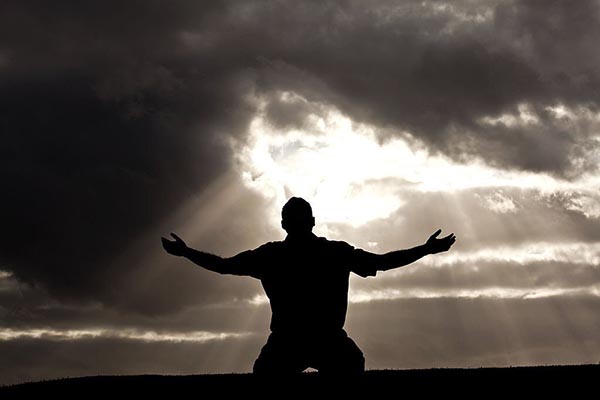
Building Retail Companies: There is some force in this universe. It’s an energy field. It’s God. And if you seek answers to the human condition, you will get the same answers.
The book is part of a broader project. We also have a course for high schools and universities that we’ll introduce. We have a course for the public that shows these people from the book. You’re in that course, Dan. You can go to OnePeopleOnePlanet.com and learn all about our corporate training programs, the speaking that I do, the book and the community training program. If you want to learn about the SEED program, you go to the Huntsman School of Business. It’s Huntsman.usu.edu. Click on programs of study and departments. You’ll find the SEED program. We have some great videos there of the people that we’ve taught around the world and the impact it’s had on our students.
As I teach public speaking at different universities around the country, I always talk about my inverted triangle. There are three questions that every person needs the answers to, 1 on 1, 1 on 10, 1 on 50,000. Why should I listen to you? The credibility piece. You’ve done so much research. You’re passionate, educated and curious about this cause of entrepreneurship and social civility. Thank you. The second question is, can I do it too with my past, weaknesses, limitations and strengths? You’ve sufficiently answered that as well. All four of your books are behavioral Bibles. It’s an instruction manual to becoming a better human being. The third question is, “How do I do it? How do I get from where I am to where I want to be?”
You illuminated the truth that truth is truth where it’s found on any ground. Plato taught all knowledge is recollection. Whenever any of us stand up in front of an audience or engage in a one-on-one conversation, we say something profound or evocative, the other person or the people nod their heads in agreement. We’re not teaching them anything new. They’re recalling something that they already learned in a previous experience. What you’re teaching us is that the truth is there. Regardless of our race, gender, ethnicity, country or language, it’s our responsibility to find the truth. You’ve made it easy for us by putting it in one book.
I want to say one last thing that’s important. I’ve been teaching entrepreneurship for many years. I love it. We’ve had a lot of successes but the reality is if you teach 100 people, not all of them are going to be able to start a business. They don’t have a good idea or a concept, passion or perseverance. With these six principles in this book, they happen in real-time. If you do one or several, you will be happier, guaranteed. If you do all of them over time, they’ll become a permanent part of your character. It will 100% elevate you to a brighter and more joyful life. There’s no question about it. They are proven. They work in real-time.
What’s the name of the book?

Building Retail Companies: Get rid of all your anger and hard feelings. Forgive people, cut them slack, and realize that they’re going to be different tomorrow than they are today. So why hold anger towards them?
What are the six truths?
The first one has to do with giving up the ego or your limiting self-perceptions.
Number two.
The next one is getting rid of your judgments and biases of other people, which limits your ability to create relationships.
Number three.
The next one is doing good deeds daily, random good deeds, not thinking of yourself but looking for other people whose lives you can bless.
Number four.
The next one’s powerful. Forgiveness. Get rid of all your anger and hard feelings. Forgive people. Cut them slack. Realize they’re going to be different tomorrow than they are now. Why hold anger towards them? It only hurts us.
If you hold a grudge, it’s like you drinking poison and expecting the other person to die. We know that truth. Number five.
Five has to do with material possessions and attachment. We’re only happy up to a certain point of income and possessions. Beyond that, they don’t make us happy. They could even cause problems with greed and hoarding. Sharing what we have.
Number six.
The sixth one is that in every community, there are people that are truly suffering. They have mental illness, emotional and physical illnesses. They’ve lost a job or out of income. They’ve gone through a divorce. It’s finding someone that is going through a period of suffering and helping that. If every one of us would find someone that was suffering and we would help them long-term, this is a little different than just doing daily good deeds. It’s helping someone who’s suffering through a crisis.
As our dear friend, John Huntsman Sr. so eloquently said, “The quickest, fastest and strongest way to strengthen ourselves is to reach down and help somebody else up.” That’s what you do in your books, public speaking, courses, classes and friendship. I love you, Michael Glauser. I honor and admire you, which is the most powerful word. I appreciate you for joining me on the show.
Thanks, Dan. It’s great to be with you.
Don’t miss this episode. Buy twenty copies of his book and share it with the world. You’ll be that one that makes the difference. Thanks for joining us.
Important Links
- John M. Huntsman School of Business
- One People One Planet
- Working
- Glorious Accidents
- The Business of Heart
- Main Street Entrepreneur
- OnePeopleOnePlanet.com
About Michael Glauser
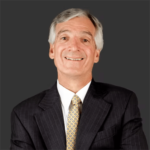 Executive Director of the Clark Center for Entrepreneurship at Utah State University Michael Glauser is an entrepreneur, business consultant, and university professor. He has built successful companies in the retail, wholesale, and consulting industries. He has worked with hundreds of startup ventures and large corporations. He is currently the Executive Director of the Jeffrey D. Clark Center for Entrepreneurship in the Jon M. Huntsman School of Business at Utah State University. He is also the co-founder and CEO of My New Enterprise, an online training, and development company. Mike’s great passion is helping people create successful companies, gain financial freedom, and live the life of their dreams
Executive Director of the Clark Center for Entrepreneurship at Utah State University Michael Glauser is an entrepreneur, business consultant, and university professor. He has built successful companies in the retail, wholesale, and consulting industries. He has worked with hundreds of startup ventures and large corporations. He is currently the Executive Director of the Jeffrey D. Clark Center for Entrepreneurship in the Jon M. Huntsman School of Business at Utah State University. He is also the co-founder and CEO of My New Enterprise, an online training, and development company. Mike’s great passion is helping people create successful companies, gain financial freedom, and live the life of their dreams
